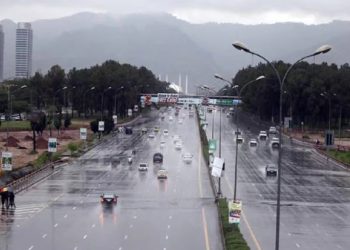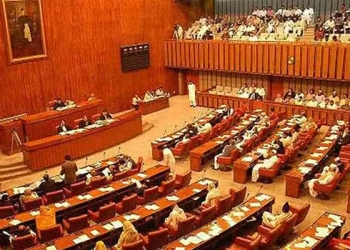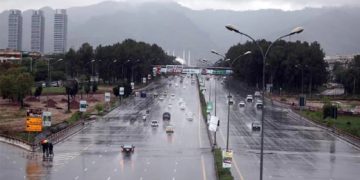The recent episode of thick fog enveloping Rawalpindi and Islamabad has added another layer of complexity to the already challenging living conditions in the twin cities. This dense fog has not only disrupted daily life but has also intensified the hardships brought about by the prevailing cold wave and power load shedding.
With visibility dropping to as low as 50 meters in various areas of the twin cities, the transportation sector bore the brunt of this unusual weather phenomenon. Flights, whether domestic or international, along with trains and vehicular movement on city roads and motorways, faced significant disruptions, compounding the challenges posed by the existing cold wave and power load shedding.
The adverse weather conditions have created a perfect storm of difficulties for residents already grappling with harsh living conditions. These conditions are taking a toll on public health, with hospitals witnessing a surge in cold-related ailments, particularly among vulnerable groups such as the elderly and children. Hospitals, including Benazir Bhutto Hospital, report an influx of over 100 patients daily, with complaints related to extreme cold conditions.
Local businesses, already facing financial challenges, are now feeling the economic repercussions of prolonged harsh weather. Reduced market visits and early shop closures in areas like Saddar in Rawalpindi reflect the impact on trade. Traders lament a decrease in customers, citing the reluctance of people to visit markets in the evening due to adverse weather conditions.
This further compounds the financial crunch faced by the business community in the region. The thick blanket of fog has disrupted routine activities and affected all modes of transportation, including roads, airports, and railways. Trains arriving late, flights being diverted, delayed, or canceled, and disruptions to road travel have become a daily struggle for the residents.
The challenges faced by the transportation sector underscore the urgency of addressing the multifaceted impact of the dense fog on the lives of those in Rawalpindi and Islamabad.
As the Meteorological Department predicts the continuation of the cold wave and fog, it is crucial for authorities to take proactive measures to alleviate the hardships faced by the residents.
The adverse weather conditions and their wide-ranging effects emphasize the need for comprehensive strategies to address not only immediate disruptions but also the long-term consequences of prolonged harsh weather in the twin cities. Implementing measures to improve transportation infrastructure, enhancing healthcare facilities, and supporting local businesses should be integral components of a holistic approach to mitigate the impact of such weather anomalies on the well-being of the community.














![This handout photo released by the IRGC’s official Sepah News Telegram channel shows smoke billowing from a site bombed by Israel in Tehran early on June 13, 2025 [Sepah News/AFP]](https://mmnews.tv/wp-content/uploads/2025/06/Israel-attack-on-Iran-1-350x250.jpg)
















